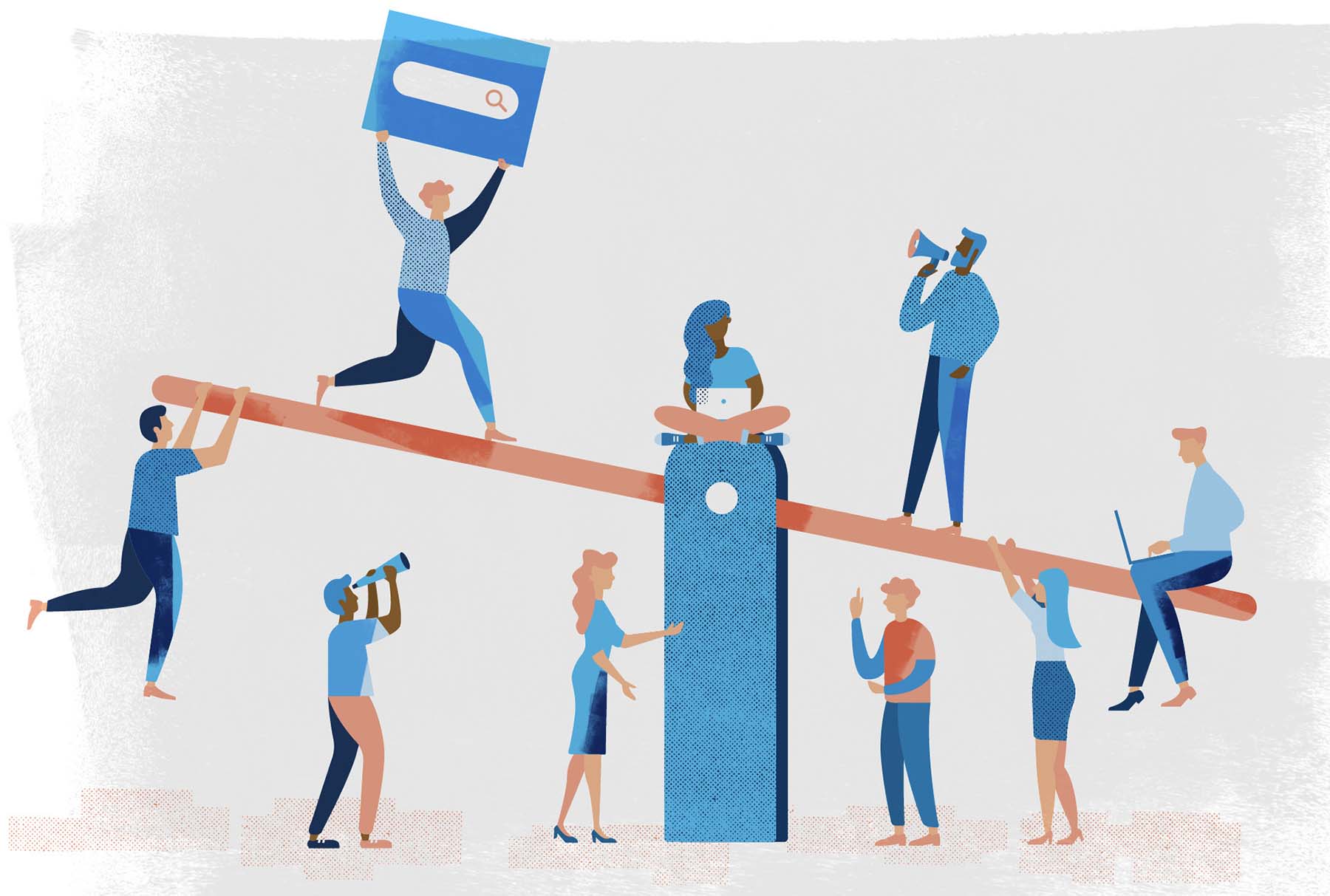Research Impact
We drive meaningful change through innovative research. Our work tackles global challenges, shapes policy and practice, and transforms organisations. It creates lasting impact for businesses, communities, and society on regional, national, and international levels.
Solving real-world challenges
Our research and impact strategy supports excellent research that will contribute towards:
- solving real-world problems for organisations
- shaping policy and practice
- benefiting society as a whole
Engagement is a key part of what we do at Newcastle University Business School. We:
- work with non-academic audiences
- build connections at local, national and international levels
This engagement has helped staff secure research funding to pursue evidence-based findings. These findings that can support organisations in developing policy and practice.
Creative Industries Policy and Evidence Centre (Creative PEC)
The Creative PEC is a leading collaborative research centre, based at Newcastle University Business School. It is led by Newcastle University, along with the Royal Society of Arts, and is funded by UKRI through the Arts and Humanities Research Council.
It brings together:
- a Research Unit
- a Policy Unit
- a national consortium of partners
Together, they deliver timely, evidence-based insights. These insights shape effective policy for the UK’s creative industries. With initiatives such as the State of the Nations reports, a global Research Fellows Network, and strong links with industry and government, the Creative PEC plays a vital role in supporting growth, innovation, and inclusive development across the sector.
Case studies
We undertake impactful research across our subject groups. Here are some examples:
- Behaviour drivers of intentions to use cash (Darren Duxbury, Finance)
- Providing a better understanding of the impact of terrorism on public views and subjective well-being in Great Britain (Harry Pickard, Economics)
- Providing an innovative leadership training programme for health-focused hybrid leadership (Ben Bader, Leadership Work and Organisations)
- Ensuring appropriate marketing of neurodiversity policy, support, and training initiatives. (Josephine Go Jeffries, Marketing)
- Realising Digital Value (Rebecca Casey, IS&O)
- Reporting of Food Waste by UK and EU companies (Josie McLaren, Accounting)
- Attracting and retaining workers and offsetting skill losses in the Derbyshire Peak District (Sue Kirk, LWO)
- Economic value of the risks to human life (Susan Chilton and Jytte Nielson, Economics)
Supporting our researchers
We encourage and support our colleagues to develop impactful research through various initiatives. They include:
Internal funding
Funding to support impactful research can be applied for. We have internally funded 15 impact research projects over the last four years.
Workload recognition
The work demand to generate and maintain pathways to impact is recognised internally through staff workloads.
Impact Academy
The Business School runs an active Impact Academy. These events are designed to:
- support colleagues who are developing impactful research, and
- allow us to share good practice
Details of previous Impact Academy events can be found below.
Impact Academy Seminar – Professor Josie McLaren
Title: Reporting of Food Waste by UK and EU Retailers
Date: 6 November 2024
Time: 11:30 – 12:30
Venue: NUBS.2.14
Speaker: Professor Josie McLaren
Abstract:
It is estimated that 30-40% of food is wasted globally each year which creates social, environmental and economic issues. The need to cut food waste is recognised in UN SDG 12.3. However, whilst on government agendas, currently there are no mandatory reporting standards around food waste. It can remain hidden within firms. The aim of this project is to assess how food waste is accounted for in the UK and EU food sector. We analyse disclosures by the top 10 retailers (by revenue) in the UK and in the EU for the period 2015-2023, to assess the current state of play. We find inconsistent definitions of food waste, and considerable variation in targets, metrics and baselines. Companies may also make changes over time, so it is challenging to compare performance and track progress. We suggest that mandatory reporting should be introduced and in the meantime, we call for standardisation of variables to enable benchmarking to take place.
From this project we aim to develop a bigger team with a view to submitting an application for external funding. The project has potential for impact and we have started to engage with stakeholders including:
Retailers (via a webinar to 65 members of the ECR Retail Loss Group – an international group, and via individual engagement with retailers in the UK and New Zealand)
- Charity (in the UK)
- Policy makers (in New Zealand)
- Academics in the UK and abroad
- Areas for discussion with colleagues:
- Challenges of moving from engagement to impact
- Implications of shared/partial impact case studies
- Challenges of moving forward in the current climate
Impact Academy Seminar – Dr Josephine Go Jefferies
Title: Neurodiversity at work in multilateral humanitarian organisations
Date: 4 December 2024
Time: 11:00 – 12:00
Venue: NUBS.2.13
Speaker: Dr Josephine Go Jefferies
Abstract:
Josephine will be presenting her neurodiversity research impact planning in conjunction with two collaborating United Nations agencies. She looks forward to discussing ways of gathering evidence of co-created impact.
Recent research funding
Securing funding is essential to advancing impactful research. It underpins research with a view to influence policy, practice and contemporary debates. Recently, we have secured funding from sources such as:
- The Institute of Chartered Accountants of Scotland (ICAS): Women’s Health and Wellbeing in the Accountancy Profession (Crawford et al.)
- ESRC: Situating Small Business Regulation. A longitudinal Study of how Small Firms Receive, Understand and Respond to Regulation (Whitehurst and Richter et al.)
- Research England: National Innovation Centre for Rural Enterprise (Gorton et al.)
- ESRC Impact Acceleration Account: Capturing Social Value added with in public prisons (Gibbon)
- North East Strategic Health Authority: Evaluation of Lean Techniques in the North East Health Authority, A Scoping Study with Durham University colleagues (Hicks, McGovern, Scurry et al.)
- ESRC Impact Acceleration Account: Social Impact Bonds in Chile (Kimmitt and Gibbon et al.)
- Developing an evidence-based strategy for the effective use of public safety messages (Weber)
- Growing the digital innovation ecosystem in the North East – Lessons Learned on Impact Measurement and Value Creation (Casey)
- Health and Safety Executive: Valuation of health and Safety Benefits – Dread Risks (Chilton et al.)
- Department of Environment, Food and rural Affairs (DEFRA): Valuing Nature Network (Chilton et al.)
- Financial Conduct Authority: Reviewing the Effectiveness of Oversight Committees (Tilba)
Knowledge Transfer Partnerships
Our Knowledge Transfer Partnerships (KTPs) generate new knowledge for the benefit of organisations. Examples include The Vindolanda Trust.
Research Excellence Framework (REF2021)
In REF2021, Newcastle University Business School submitted nine Impact Case Studies. Over 70% were assessed as having very considerable or outstanding impact in terms of significance and/or reach.
The case studies highlighted how our research has had impact:
- at societal, economic, political and technological levels
- across both private and public sector organisations



